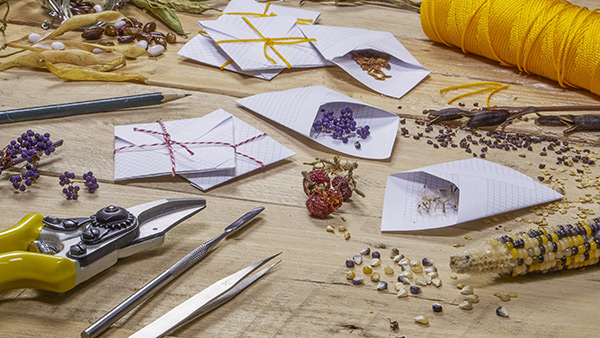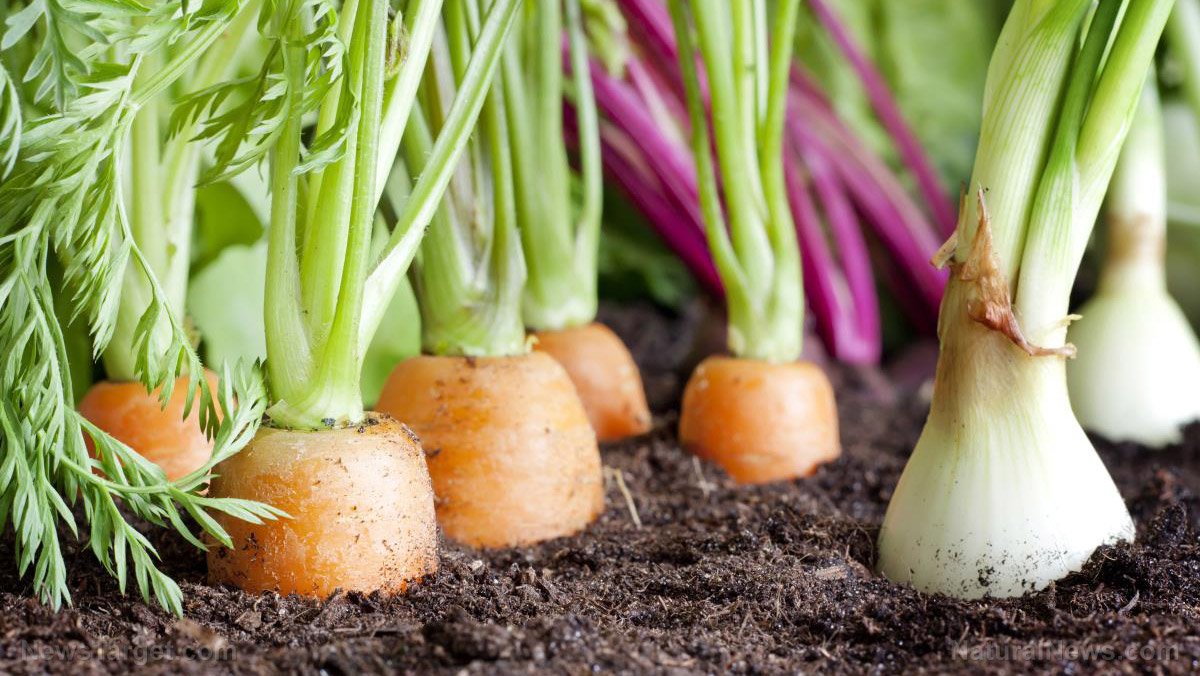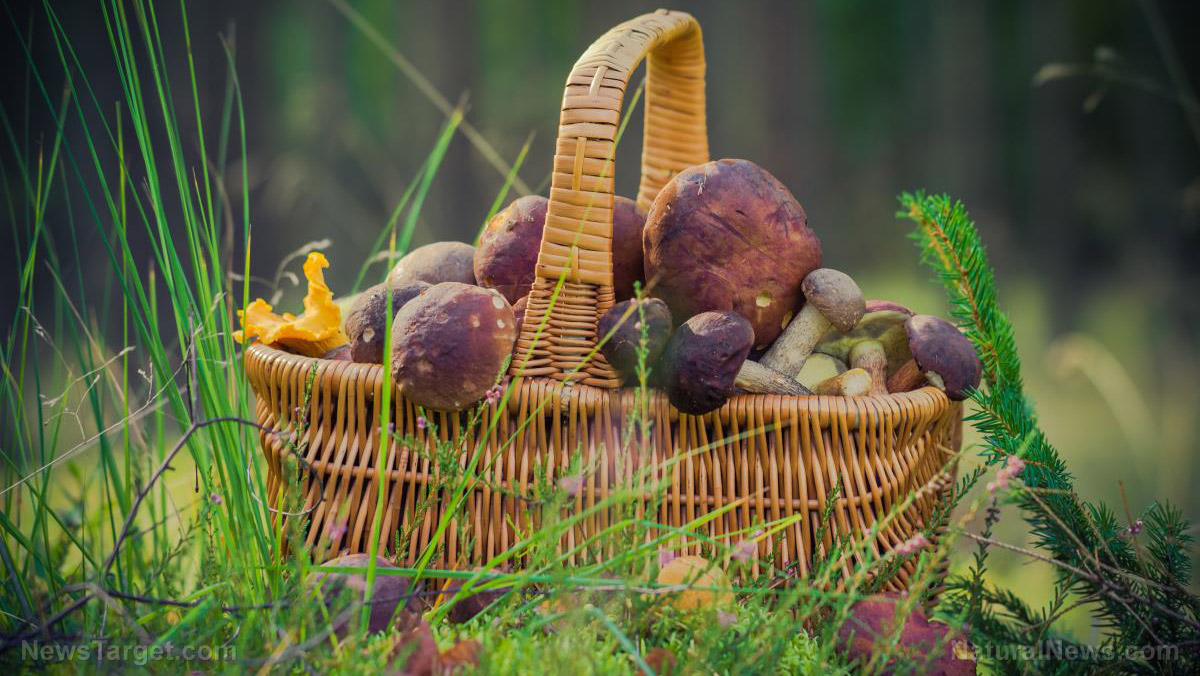
Advertisement
Nothing beats the feeling of growing vegetables from small seeds and then eating the resulting harvest. Home gardeners would usually save up the seeds from vegetables they eat or buy the seeds from a store. But let’s face it: Some of these seeds will not last forever. Vegetables such as leeks, onions, parsley and parsnips have seeds that last a year at best.
Don’t let this discourage you, as other vegetable seeds have a longer shelf life. Some can be planted five years after being harvested. When stored in the right conditions, they can even last longer!
Aside from how you store seeds, the kind of vegetables you obtain the seeds from also plays an important role. While storing seeds in frozen temperature is the most ideal way, most home gardeners do not have equipment for safe-keeping seeds at a controlled temperature.
Here are seven vegetables with seeds you can keep for about five years without freezing. In addition, these also come with wonderful health benefits for your body!
Broccoli
Broccoli sprouts contain high amounts of the phytochemical glucoraphanin. The body converts this compound in broccoli into a chemical called sulforaphane when the vegetable is digested. Studies have revealed the potential health benefits of sulforaphane in broccoli – which include reversing the effects of oxidative stress and preventing the onset of certain cancers.
Cauliflower
Cauliflower is a good source of fiber, which promotes digestive health. One hundred grams of cauliflower contains 2.5 grams of fiber, which fulfills 10 percent of the daily requirement. Cauliflower also contains choline, which is an important nutrient for brain health. Animal studies have shown that choline which cauliflower has plays an important role in optimal memory and brain function.
Cabbage
Cabbage possesses compounds that exhibit strong anti-cancer potential. Apigenin, for example, has been found to shrink the size of tumors caused by aggressive cancer cells. Meanwhile, compounds in cabbage called anthocyanins have been lauded for their anti-carcinogenic properties. These anthocyanins are responsible for the bright, vibrant color of red cabbage and other fruits and vegetables.
Cucumber
Cucumber is a vegetable known to promote hydration. It is made up of about 96 percent water, making it a perfect choice for those wanting to increase their liquid intake. Cucumber has also been found to help reduce blood sugar, alongside other vegetables. A study found that cucumber, alongside five other edible plants, prompted significant reductions of blood glucose.
Spinach
Spinach definitely makes Popeye “strong to the finish” because it contains a load of beneficial nutrients and phytochemicals. Eat spinach and benefit from its high iron, calcium and vitamin C content –contributing to a stronger body. Spinach is also rich in zeaxanthin and lutein, two plant compounds that help promote clear vision and prevent degenerative eye diseases.
Radish
If you’re looking for a vegetable that fights the big C and is low in calories, then a radish is your best pick! It contains isothiocyanates which can inhibit and even reverse the growth of cancer cells. A study also found that radish exhibited strong antifungal properties against Candida albicans, a common fungus that causes yeast infections.
Lettuce
There are different kinds of lettuce available, but they are all equally nutritious. Lettuce is rich in antioxidants that promote cardiovascular health. A 2004 study involving rats elaborated on the significant impact of lettuce on cholesterol and antioxidant levels in the body. The researchers found that lettuce consumption increased the amount of cholesterol the body expelled. They also noted that lettuce significantly contributed to the amount of antioxidants present.
You can definitely plant these seven vegetables within five years after collecting their seeds, provided that you keep the seeds in optimal condition. Put seeds inside an airtight container to keep them dry. Glass jars with rubber seals on the lids, just like the ones used for home canning, are ideal for this purpose. You can add in a desiccant such as rice in case you are concerned with moisture buildup within the jar.
Seeds are best stored in cool, dry locations – and storing them in the refrigerator or freezer maintains the ideal storage conditions. Most frost-free fridges and freezers draw out moisture, which may dry out seeds. But this should not be a concern if your seeds are kept inside an appropriate container.
When replanting seeds you have stored for some time, you should consider two factors – viability and vigor – before doing so. Seeds are highly viable when a majority of the seeds in a batch sprout, while seeds have low viability if only two or three in a batch germinate. Meanwhile, sprouted seeds that can grow in variable soil and weather conditions are said to be vigorous.
Seeds’ viability and vigor may decrease with age: They may lose their ability to sprout, and those that do may not grow to become a healthy plant. If you have seeds that have been in storage for five years now, it would be best to plant them this year and get a new batch of seeds from this harvest.
Visit Seeds.news to learn more about gardening and growing vegetables from seeds.
Sources:
SciELO.ISCIII.es [PDF]
Advertisements







